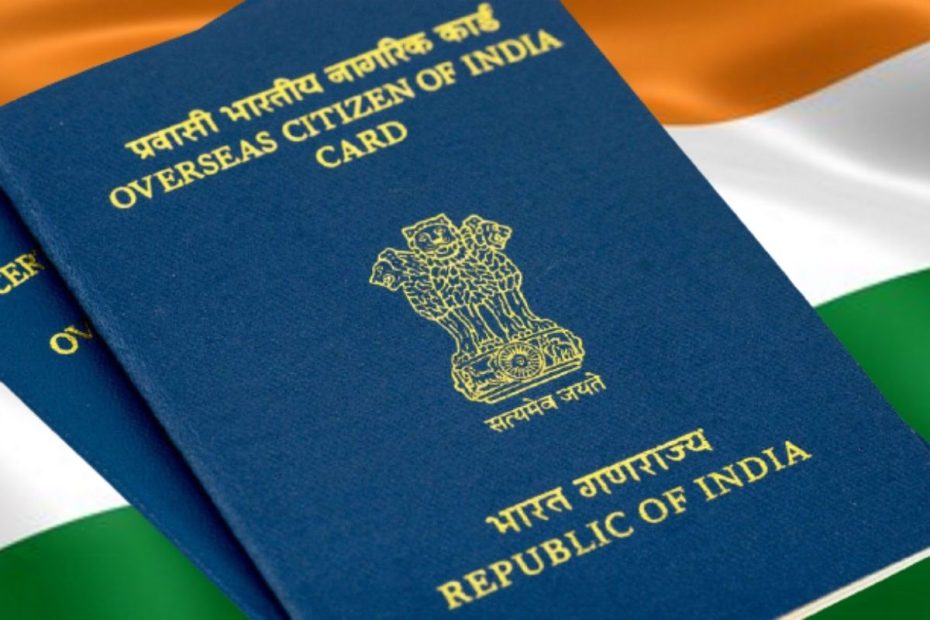India offers an OCI card to foreign passport holders and PIO card holders. Except for Pakistani and Bangladeshi citizens, anyone can get an OCI card as long as they provide proof of Indian origin.
About OCI
Overseas Citizenship of India (OCI) is a form of permanent residency available to people of Indian origin and their spouses which allows them to live and work in India indefinitely. Despite its name, OCI is not recognized as citizenship by the Republic of India and by the majority of nations worldwide and it does not grant the right to vote in Indian elections or hold public office. The Indian government can revoke OCI status in a wide variety of circumstances. In addition, the OCI card is only valid with a valid foreign passport. As of 2020, there are 6 million holders of OCI cards among the Indian Overseas diaspora.
The OCI scheme was introduced by The Citizenship (Amendment) Act, 2005 in response to demands for dual citizenship by the Indian diaspora. It provides overseas citizens many of the rights available to resident citizens.
OCI status is not available to anyone who has ever been a Pakistani or Bangladeshi citizen, or who is a child, grandchild, or great-grandchild of such a person.
OCI Card – A Brief Introduction
The Overseas Citizen of India (OCI) card is a lifelong visa that allows a holder to enter India whenever they want! It is a multiple-entry, multi-purpose travel document that can be used to live or work in India. An Overseas Citizen of India cardholder enjoys all the privileges a normal citizen of India enjoys.
All OCI card holders are exempted from having to report to police authorities for the length of stay in the country. In addition, an OCI cardholder is eligible to purchase plantation or agricultural properties.
Following are the individuals eligible for an OCI card:
- Anyone with proof of Indian origin
- Foreign nationals belonged to a land that became Indian territory after the independence
- Applicants who were eligible to become a citizen of India on 26th January 1950
- Individuals who had Indian citizenship on or after 26th January 1950
Benefits of OCI Card
- Multiple entry, multi-purpose life long visa to visit India
- Exemption from reporting to Police authorities for any length of stay in India
- Parity with NRIs in financial, economic and educational fields except in the acquisition of agricultural or plantation properties
Documents Required for an OCI Card
To get an OCI card, applicants are required to fill out the OCI card application form and submit the required documents. You need to provide both original and photocopies of your documents.
Here are some of the most important documents required for OCI registration as OCI cardholders:
Mandatory Documents
All applicants, foreign passport holders and former Indian nationals, are required to provide the following documents:
- Naturalization Certificate
- Foreign passport
- Two recent photographs
- An OCI application form
Documents for Applicants Born in India
If an applicant was born in India, he/she needs to submit:
- An affidavit explaining how they traveled to a foreign country
- Surrender certificate
- Renunciation certificate
- Indian passport
- Agricultural land documents
- School leaving certificate
- Birth certificate
- Domicile certificate
Documents for Applying on the Basis of Spouse/Parents/Grandparents
In case an applicant wants to obtain an OCI card on the bases of their spouse, parents, or grandparents, they are required to have:
- Birth certificate of parents
- Marriage certificate of spouse
- Grandparent’s proof of Indian origin
- Domicile
- Indian passport
Spouse of foreign origin of an OCI cardholder or citizen of india can get an OCI card as well!
Requirements for Minor Applicants
If a minor applicant wants to obtain an OCI card, he/she needs to provide all the above-mentioned documents. In addition, parents have to self-attest those documents. In case one of the parents of minor children is not eligible for an OCI card, the minor cannot get Indian citizenship as well!
OCI Card Processing Time and Fees
Once you have all the above-mentioned documents, you can apply for an OCI card. There are numerous service providers out there that can help you out. You’ll need to submit your application and pay the processing fee. On approval, you’ll get your OCI card from the embassy.
On average, the processing time for an OCI card can fall anywhere between 7-11 weeks. This is because your card will be from Delhi, India. Afterward, the Indian embassy located in your country will match the document with the card, which can take an additional 1 week.
The OCI card fee depends upon your selected service provider. You’ll need to pay the Indian embassy fee, which is $275, and the ICWF fee, which is around $3. In addition, you might also have to pay the service fee, which can vary from service provider to service provider.
OCI-Registration
Application for registration as OCI can be made Online. Before filling the application, Instructions may be perused so that there is no mistake in submission of application. Further, the details regarding Fee and Offices where applications have to be filed may also be perused.
To apply for OCI registration, visit Government of India OCI Online Services.
